BUCKSPORT — The industrial hum can be heard downtown and in surrounding neighborhoods. The hum is ever-present because production never stops at the massive paper mill at the edge of the Penobscot River.
It’s been this way for generations.
But the hum became less noticeable this week when workers shut down two of the mill’s three paper production lines.
Early Friday, workers on the overnight shift were scheduled to shut down the mill’s last paper machine, the 84,000-ton B1.
Then Bucksport will be quiet.
“It’s eerie,” Ryan Pickoski, a fourth-generation millworker, said of the atmosphere inside the mill with two machines already shut down.
Although townspeople have had two months to absorb the news that the mill will close, the impact hasn’t been felt yet. Verso Paper Corp. announced in October that it was closing the mill because of high energy costs and low demand for its paper. The factors have been oft-cited this year as a paper mill in East Millinocket and pulp mill in Old Town also stopped production.
In this town of 5,000, the Verso mill generates 47 percent of the town’s tax revenue. Its more than 550 workers, who earn an average of $26 per hour, keep restaurants serving, retailers selling and other service providers in business.
The company plans to keep its employees on the payroll through the end of the month to clean, mothball and winterize the plant. Initially, Verso management planned to shut down the paper machines on Dec. 1, but later decided to keep workers through Dec. 31. Those extra paychecks will help fill the oil tank and pay some bills, said Mike Hamilton, 59, a 33-year employee in the maintenance department.
He said many workers find it hard to believe the mill is shutting down for good.
“The reality hasn’t happened yet.” He said. “People are still making money.”
Katherine George is married to a millworker and said her husband still goes to work every day, so everything seems normal.
“The day he gets up and doesn’t have a place to go – that’s when it will affect him,” she said.
Like many other Maine papermakers, the average age here is nearly 55, according to a survey of 576 employees. Many have never worked anywhere else.
Of the 303 employees who responded to a detailed questionnaire, more than half said they would attend a workshop called, “How to Look for Work.”
More than one-third said they wanted a course on basic computer skills. Only 10 employees said they would attend a workshop on how to cope with job loss or stress and anger issues.
The Bucksport workers put a human face on a global trend that has clobbered Maine papermakers in recent years. The industry has been reeling from weak demand, high energy costs and foreign competition; its workforce has been cut nearly in half since 2000 – dropping from 12,847 to 6,913 in 2013. Verso Paper, headquartered in Memphis, Tennessee, owns another mill in Jay and a mill in Michigan.
The company has been waiting for federal approval to merge with NewPage Holdings, which operates a mill in Rumford. The two companies specialize in making paper for magazines, catalogs and commercial printing.
Paper analysts have speculated that Verso’s decision to close the Bucksport mill stems from two things: The mill has never been profitable, and Verso needs to reduce excess capacity to allay regulators’ fears that the merger with NewPage would create a monopoly in coated paper production. The closure will reduce Verso’s annual coated groundwood paper production capacity by about 350,000 tons and its specialty paper production capacity by about 55,000 tons, or about 39 percent of Verso’s output in Maine. Its Androscoggin Mill in Jay produces more than twice the amount of pulp as the mill in Bucksport, and about one-third more paper.
The NewPage merger is expected to be completed by the end of the year. No corporate representatives can comment on the progress of the merger until it is complete.
But company spokesman Bill Cohen could comment on the work force at Bucksport. He said he is impressed by the workers’ attitudes as they approach the end of their papermaking careers.
“We have noticed that these folks, no matter what, are working proudly and safely,” he said, noting it takes several hours to shut down each machine. “These folks pay attention. The quality is there.”
Pickoski, whose great-grandfather got a job at the mill when it opened in 1930, agreed.
“There has been no letup,” he said. “People are doing their jobs just as they always have.”
Bruce Robertson, president of Local 261 of the United Paperworkers International Union, said emotions have run the gamut among the workers.
“There is disbelief, sadness, apprehension, anxiety,” he said. “People are just not sure what’s ahead for them.”
Dick Stubbs, 75, who retired in 2005 after 40 years of making paper, could see the sprawling mill from where he sat alone in his parked car near the river.
White smoke drifted from its tallest stack.
He could still hear the hum. By dawn Friday, it will be gone.
“It’s too goddamn bad,” he said.
Send questions/comments to the editors.


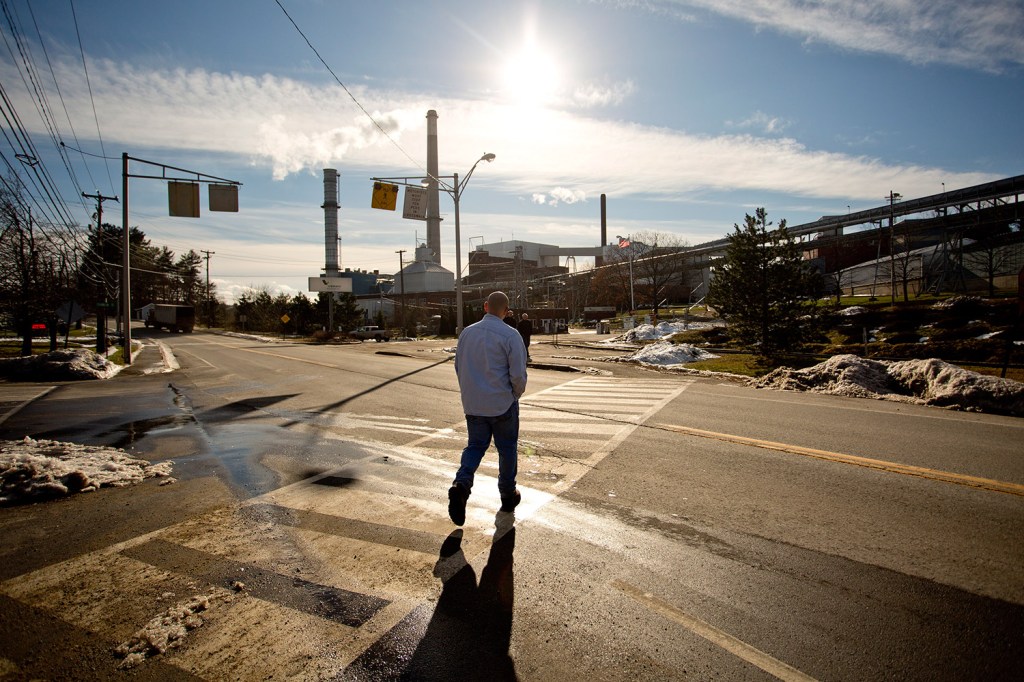



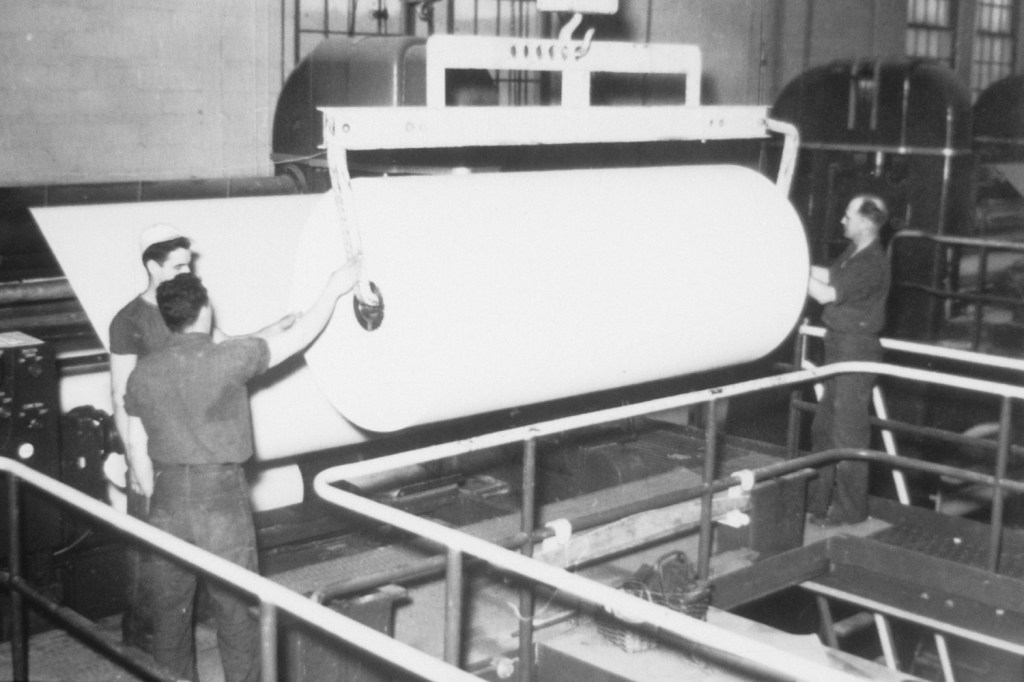
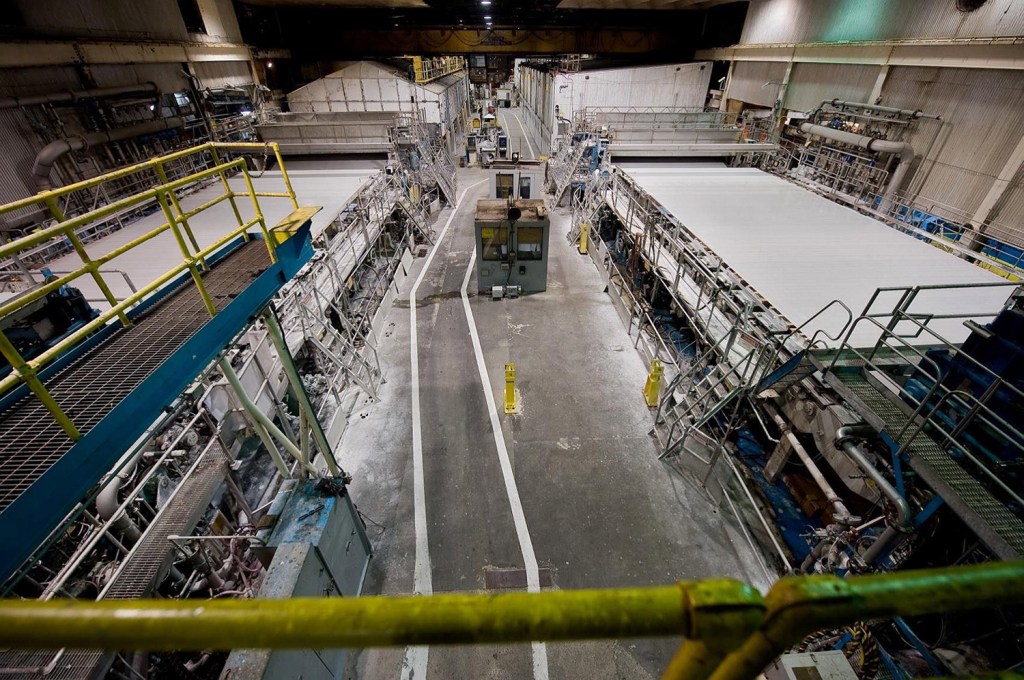
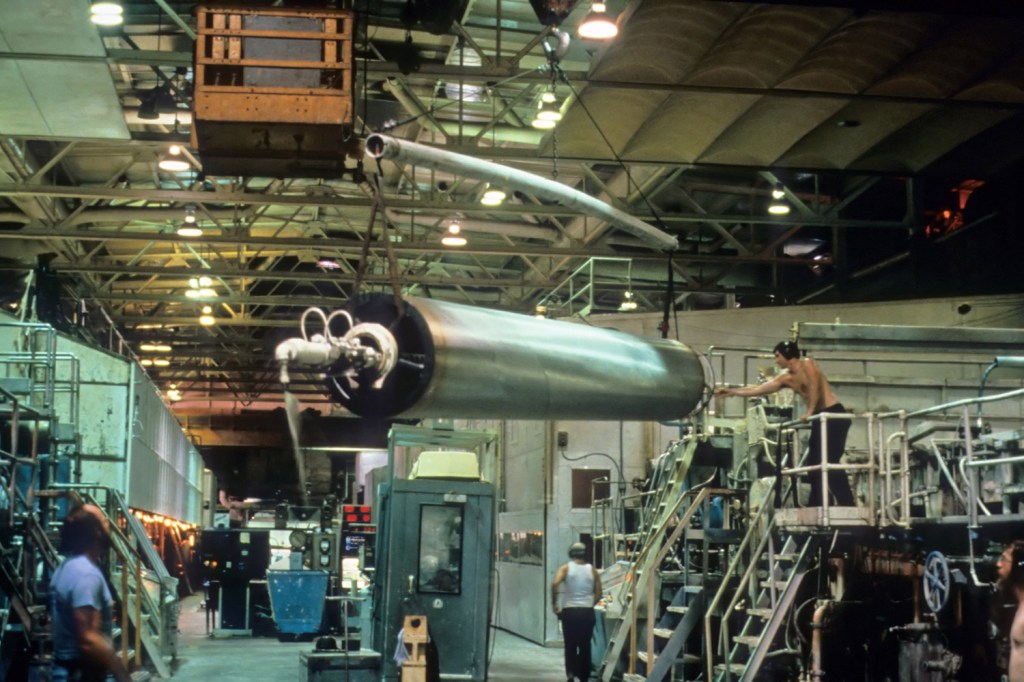
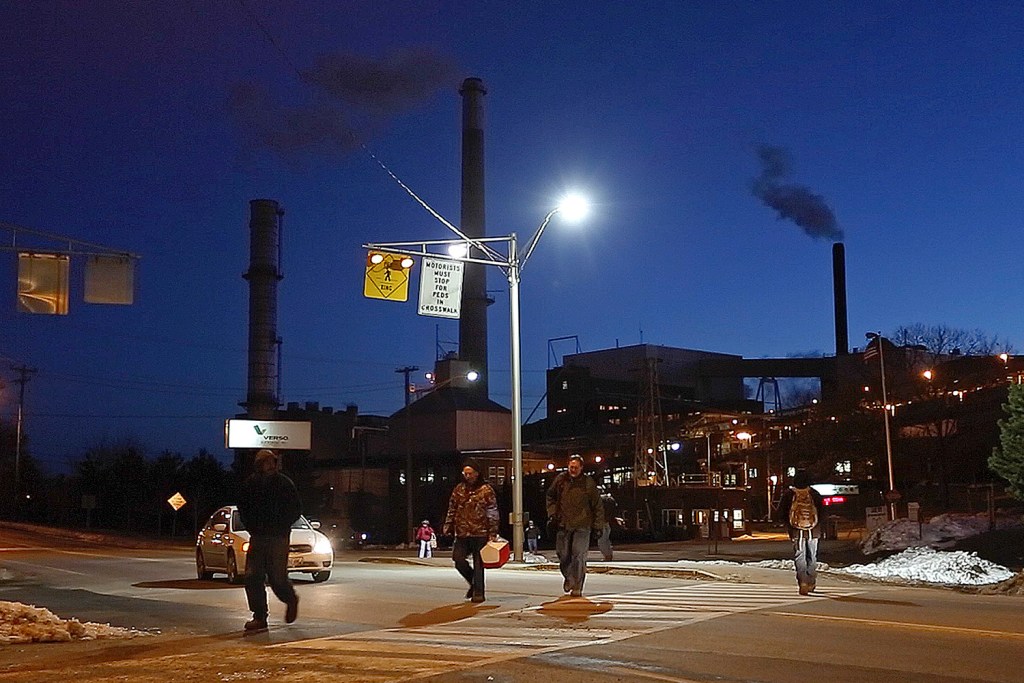
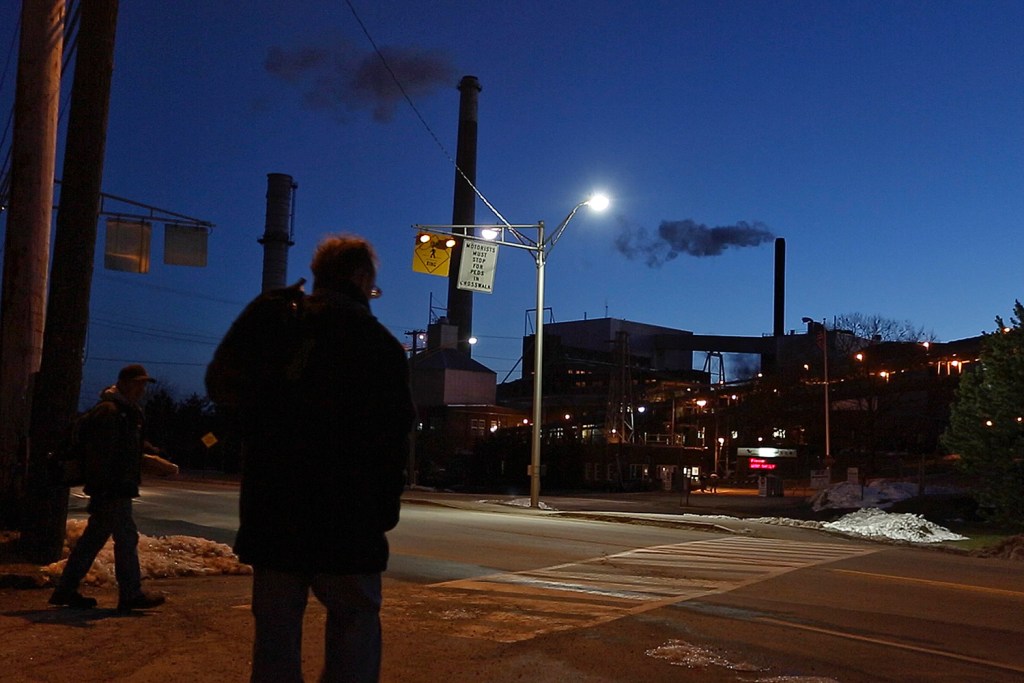

Success. Please wait for the page to reload. If the page does not reload within 5 seconds, please refresh the page.
Enter your email and password to access comments.
Hi, to comment on stories you must . This profile is in addition to your subscription and website login.
Already have a commenting profile? .
Invalid username/password.
Please check your email to confirm and complete your registration.
Only subscribers are eligible to post comments. Please subscribe or login first for digital access. Here’s why.
Use the form below to reset your password. When you've submitted your account email, we will send an email with a reset code.